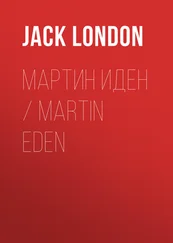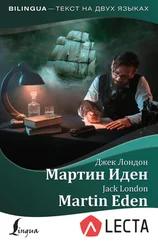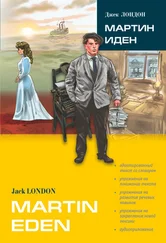On Friday night he finished the story, twenty-one thousand words long. At two cents a word, he calculated, that would bring him four hundred and twenty dollars. Not a bad week’s work. It was more money than he had ever possessed at one time. [58] at one time – сразу
He did not know how he could spend it all. He planned to buy some more clothes, to subscribe to many magazines, and to buy many useful books. And still there was a large portion of the four hundred and twenty dollars unspent. Finally, he decided to hire a servant for Gertrude and to buy a bicycle for Marion. [59] Marion – Мэрион
He mailed the big manuscript to THE YOUTH’S COMPANION, and on Saturday afternoon he went to see Ruth. He had telephoned, and she went herself to greet him at the door. He flushed warmly as he took her hand and looked into her blue eyes. She noted his clothes. They really fitted him, – it was his first made-to-order suit. [60] made-to-order suit – костюм, сшитый на заказ
Ruth did not remember when she had felt so happy. This change in him was her handiwork, and she was proud of it.
But the most radical change of all, and the one that pleased her most, was the change in his speech. Not only did he speak more correctly, but he spoke more easily, and there were many new words in his vocabulary. He displayed a lightness and facetiousness of thought that delighted her.
He told her of what he had been doing, and of his plan to write for a livelihood and to go on with his studies. But she did not think much of his plan.
“You see,” she said frankly, “writing must be a trade, like anything else. You can’t become a blacksmith without spending three – or five! – years at learning the trade.”
“What would you advise?” he asked. “And don’t forget that I feel in me this capacity to write – I can’t explain it; I just know that it is in me.”
“You must get a good education,” was the answer, “You must go to high school.”
“Yes – ” he began; but she interrupted:
“Of course, you can go on with your writing, too.”
“I will,” he said grimly.
“Why?” She looked at him, prettily puzzled.
“Because I must live and buy books and clothes, you know.”
“I forgot that,” she laughed. “Why weren’t you born with an income?”
“I’d rather have good health and imagination,” he answered.
* * *
Then she played and sang to him, while he gazed with hungry yearning at her.
He stopped to dinner that evening, and, much to Ruth’s satisfaction, made a favorable impression on her father. They talked about the sea as a career, and Mr. Morse remarked afterward that he seemed a very clear-headed [61] clear-headed – здравомыслящий
young man. Martin talked slowly, which enabled him to find the best thoughts that were in him. His shyness and modesty even commended him to Mrs. Morse.
“He is the first man that ever drew notice from Ruth,” she told her husband.
Mr. Morse looked at his wife curiously.
“You mean to use this young sailor to wake her up?” he questioned.
“I mean that she is not to die an old maid if I can help it,” was the answer. “If this young Eden can arouse her interest in mankind in general, it will be a good thing.”
“A very good thing,” he commented. “But suppose, – and we must suppose, sometimes, my dear, – suppose he arouses her interest too particularly in him?”
“Impossible,” Mrs. Morse laughed. “She is three years older than he, and, besides, it is impossible. Trust that to me. [62] Trust that to me. – Доверься мне.
”
Sunday Martin had intended to devote to studying for the high school examination. But some days after he learned that he had failed in everything save grammar. [63] he had failed in everything save grammar – провалился по всем предметам, за исключением грамматики
“Your grammar is excellent,” Professor Hilton [64] Hilton – Хилтон
informed him, staring at him through heavy spectacles; “but you know nothing, positively nothing, in the other branches, and your United States history is abominable – there is no other word for it, abominable.”
“Yes, sir,” Martin said humbly.
“And I can advise you to go back to the grammar school for at least two years. Good day.”
“You see I was right,” said Ruth. “It is because you need the discipline of study. Professor Hilton is right, and if I were you, I’d go to night school.”
But if my days are taken up with work and my nights with school, when am I going to see you? – was Martin’s first thought. He said:
“It seems so babyish for me to go to night school. I can do the work quicker than they can teach me. It will be a loss of time – ” he thought of her – “and I can’t afford the time. I have no time to spare, in fact.”
She looked at him gently. “Physics and chemistry – you can’t do them without laboratory study; and you’ll find algebra and geometry almost hopeless with instruction. You need the skilled teachers, the specialists.”
Martin went back to his pearl-diving article. [65] pearl-diving article – статья о ловцах жемчуга
After that he wrote an article on the sea as a career, and another on turtle-catching. [66] turtle-catching – ловля черепах
Then he tried, as an experiment, a short story, and he had finished six short stories and sent them to various magazines. He wrote, intensely, from morning till night, and late at night, except when he went to the reading-room, draw books from the library, or saw Ruth. He was profoundly happy. The joy of creation was his. All the life about him – the odors of stale vegetables and soapsuds, his sad sister, and the jeering face of Mr. Higginbotham – was a dream. The real world was in his mind, and the stories he wrote were reality.
The days were too short. There was so much he wanted to study. He cut his sleep down [67] he cut his sleep down – он сократил время сна
to five hours.
In the meantime the weeks were passing, his money was coming out, and there was no money coming in. A month after the adventure story for boys was returned to him by THE YOUTH’S COMPANION. The SAN FRANCISCO EXAMINER did the same: at the end of the fifth week the manuscript came back to him, by mail, without comment. In the same way his other articles came back from the other leading San Francisco papers. When he recovered them, he sent them to the magazines in the East, from which they were returned more promptly.
The short stories were returned in similar fashion. He read them over and over, and liked them so much that he could not understand the cause of their rejection. He decided to read some stories to his sister.
“That story was perfectly grand,” she announced; “but it makes me sad. I want to cry. There is too many sad things in the world anyway. It makes me happy to think about happy things. Where are you going to sell it?”
“Hm, that’s not so easy,” he laughed.
“But if you DID sell it, what do you think you’d get for it?”
“A hundred dollars.”
“Oh! I do hope you’ll sell it!”
“Easy money, eh?” Then he added proudly: “I wrote it in two days. That’s fifty dollars a day. But nobody wants to publish them.”
He wanted to read his stories to Ruth, but did not dare.
It was the circle of socialists and working-class philosophers that gathered in the City Hall Park [68] City Hall Park – Сити-Холл-парк
on warm afternoons that was responsible for the great discovery. Once or twice in the month, Martin listened to the arguments. The tone of discussion was much lower than at Mr. Morse’s table. The men were not grave and dignified. They lost their tempers easily. [69] They lost their tempers easily. – Они легко выходили из себя.
Читать дальше
Конец ознакомительного отрывка
Купить книгу
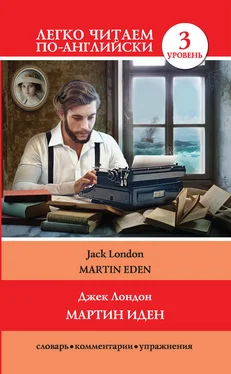


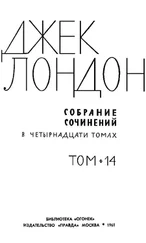



![Джек Лондон - Мартин Иден [litres]](/books/408564/dzhek-london-martin-iden-litres-thumb.webp)

